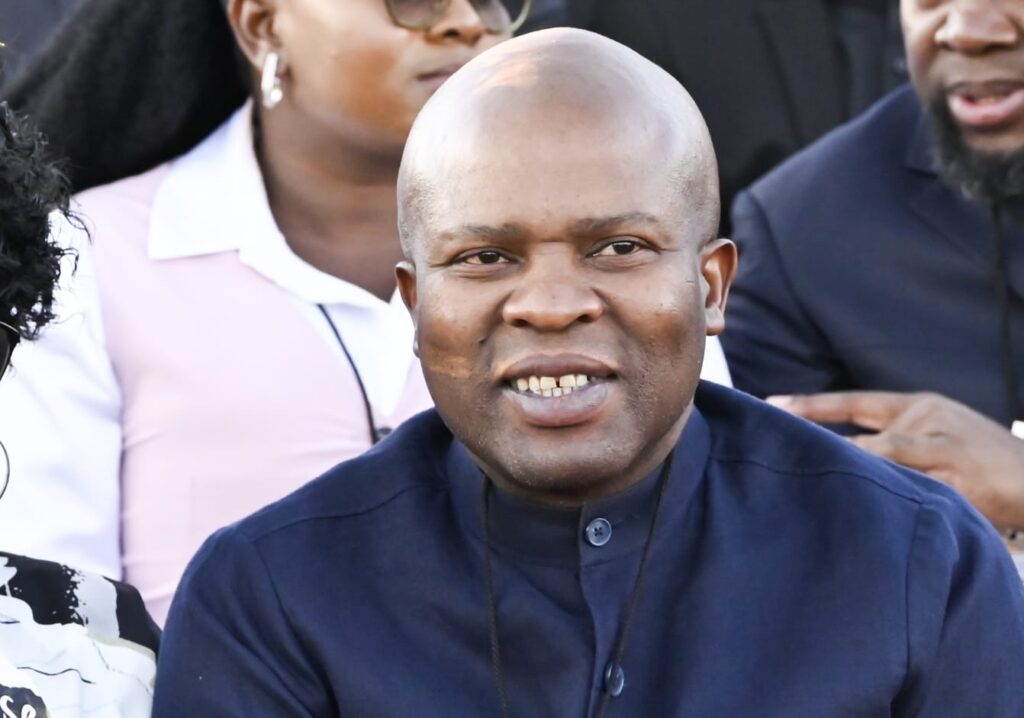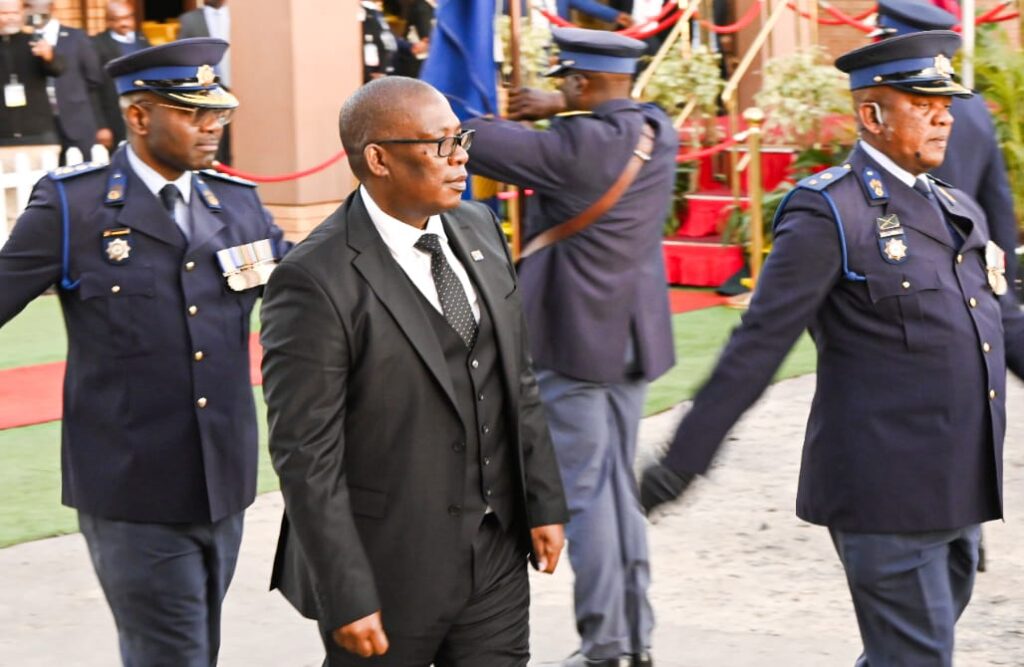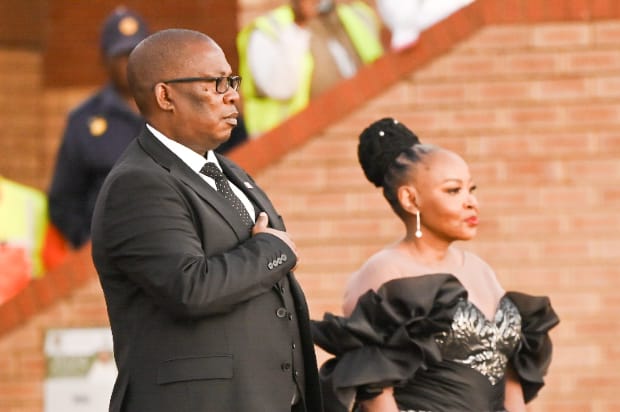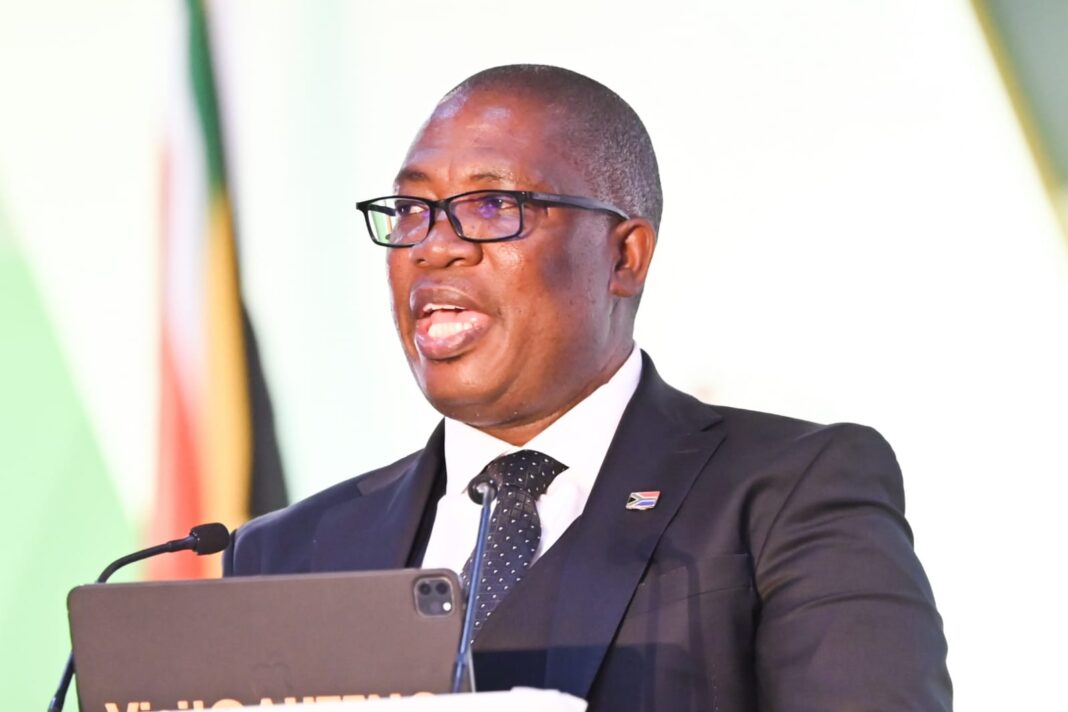Johnathan Paoli
Gauteng Premier Panyaza Lesufi has identified strengthening local government, improving state capacity and revitalizing township informal settlements as some of the key priorities for
the 7th administration.
Effectively dealing with crime and corruption, encouraging investment and economic growth, modernizing hostels and central business districts and securing more jobs for the people also made it into the premier’s wish list.
Lesufi unveiled the priorities on Thursday evening while delivering the opening of the first term of the 7 th administration legislature to be led by the ANC under a newly constructed Government of Provincial Unity after the party failed to get the majority vote in the May 29
national and provincial elections.
In his address, Lesufi proudly claimed that promises made under the 6th administration have been delivered on. He expressed confidence at his current administration’s vision for the future of the province.
The official opening of the Gauteng Provincial Legislature (GPL) was held at the Change Bible church in Katlehong, with a parade by members of the police as well as metro police preceding the arrival of the premier.

Lesufi said the location was chosen for its historical importance and as part of the provincial government’s decision to boost township economies and bring the message of service delivery closer to the marginalized of society.
He said some of the achievements made since his address at the beginning of the year include: doing away with e-tolls; progress in the establishment of a state bank; the completion of lifestyle audits in the form of a report from the Special Investigative Unit.
Lesufi said that in relation to the electricity and energy shortcomings in the province, 485 transformers across Ekurhuleni, Vaal, Johannesburg, Westrand and Tshwane have been installed to date.
The premier welcomed the possible identification of an additional 3000 MWs to the national grid, the commissioning of the John Ware Open Cycle Gas Turbine (OCGT), and the Durban Street OCGT which is expected to be operational later this month.
He said in order to give effect to the Agriculture and Agro-processing Master Plan (AAMP), 15 Gauteng smallholder grain farmers have been approved for funding of approximately R70 million, in partnership with Land Bank and Pepsi-Co.

In addition, memoranda of agreement (MOAs) totaling about R55 million are expected to be signed with eight commercial farming entities operating across different sub-sectors.
The premier said R2.3 billion is to be invested in order to facilitate the roll out of a stable Gauteng Provincial Network and ICT connectivity across the province’s City Region.
He announced capital investment projects such as the Gauteng-Limpopo inter-provincial fast rail linkage and the establishment of an e-commerce hub in Harrismith, due to its proximity to Gauteng, KwaZulu-Natal and Mpumalanga.
Further an investment of R120 billion in the expansion of the Gautrain to Soweto, Mamelodi, Atteridgeville, Lanseria and Springs, creating over 125 000 jobs during a five-year period.
Lesufi said the provincial government signed an R1.1 billion agreement with the national skills fund and a R8 billion agreement with the Unemployment Insurance Fund (UIF) in order to re-skill almost 500 000 unemployed residents.
The premier took the opportunity to apologise for the termination of 32 000 contracts of Gauteng Youth Brigade (GYB) beneficiaries at the end of July after initially previously promising back in February that the initiative would be extended until 2025.
“We want to apologise to them for the abrupt termination but assure them that with new investment opportunities, we will open new opportunities, so they do not rely on temporary jobs,” he said.
The provincial budget for the 2024/2025 financial year stands at R165 billion, with R1.7 billion earmarked for economic development, R5.3 billion for job creation initiatives, R2.3 billion for community safety, R5.8 billion for human settlements, R64.8 billion for health, and
R65.8 billion for education.
The premier closed with a call to continue with the provincial government’s drive to turn the province around.
“I wish to reassure the people of our province that we will continue to ramp up measures to drastically reduce crime, maintain electricity and water supplies, and commit to job creation,” he said.
ActionSA provincial leader Funzi Ngobeni welcomed the premier’s approach to investment and said he agreed with the marked changes in tackling the province’s challenges.
“We don’t hear a lot of gimmicks now. We hear about sustainable jobs. We also welcome inner-city rejuvenation because that is what ActionSA has been calling for to say ‘let’s take the hijacked buildings and give them to the private sector to redevelop and turn them into
student housing’,” Ngobeni said.
Not everyone shared the premier’s optimism however, with Democratic Alliance (DA) provincial leader Solly Msimanga, in an interview with Inside Politics expressing his disillusionment.
“I do not think we are going to receive anything shocking with this address. The ANC administration has failed to deliver on any of their promises and ensure economic growth and development in the province,” Msimanga said.
He criticised the backtracking of the ANC in relation to securing additional employment opportunities, following the collapse of certain initiatives.
Msimanga said the premier should outline detailed plans concerning all departments, especially the “hollow and insignificant” ones given to smaller parties such as the Inkatha Freedom Party (IFP) and Rise Mzansi.

Economic Freedom Fighters (EFF)’s provincial spokesperson Dumisani Baleni said the people have increasingly grown tired of empty promises.
“We expect the premier to repeat his previous commitments without clear timelines,” Baleni said.
He said the red berets were particularly interested in hearing about the progress on addressing the human settlement crisis, as concerns remain about its effectiveness.
Umkhonto weSizwe (MK) provincial spokesperson Bafana Mahlabe said they similarly did not expect much change considering the ANC has retained a leading role in the administration of the province.
“The numerous complaints about service delivery, as shown by protests and petitions, reflects the performance of government departments in the province,” Mahlabe said.
INSIDE POLITICS

